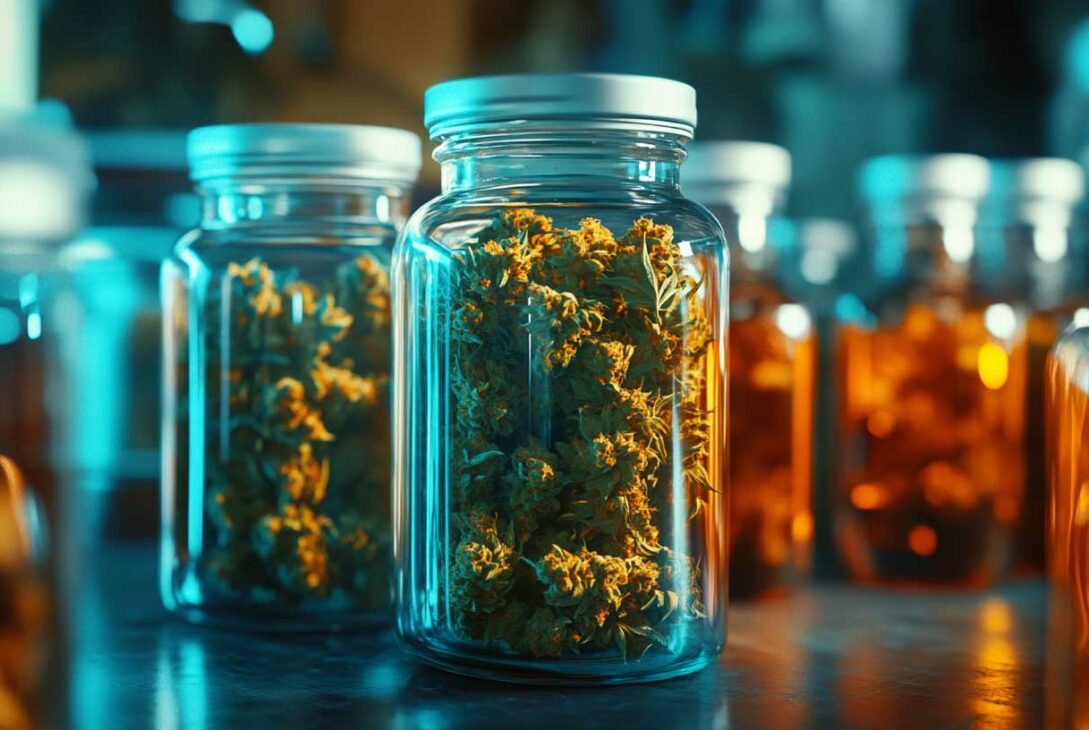Introduction
In recent years, Delta-8 THC products have surged in popularity across the United States, often hailed as a milder alternative to traditional cannabis. However, behind this allure lies a crucial issue: the unregulated nature of these products raises significant safety concerns. This guide aims to illuminate the potential risks associated with unregulated Delta-8 THC, offering insights that both consumers and healthcare professionals should consider before embarking on their cannabinoid journey.
What is Delta-8 THC?
Delta-8 THC is a cannabinoid found in the cannabis plant, but it’s not present in substantial amounts naturally. Instead, its creation usually involves a transformation from hemp-derived CBD through a sophisticated chemical process. This conversion raises several health and safety concerns that are vital for consumers to understand. As Delta-8 gains traction, awareness about its origins and the accompanying risks must go hand-in-hand.
Safety Concerns and Risks
Unregulated Manufacturing
One of the primary concerns surrounding Delta-8 THC is its production in unregulated environments. Unlike mainstream cannabis products, these items do not require FDA approval, resulting in a majority being produced in unsanitary or uncontrolled settings. This lack of oversight leaves room for potentially dangerous contaminants, including:
- Heavy metals: such as lead and mercury
- Pesticides and herbicides
- Residual solvents
These impurities pose serious health risks, making careful sourcing essential for anyone considering the use of these products.
Use of Potentially Harmful Chemicals
The chemical process used to convert CBD into Delta-8 THC often incorporates household chemicals that can be hazardous. These chemicals can lead to the formation of harmful by-products that might not only compromise the integrity of the final product but could also impact health adversely. It’s worth noting that manufacturers might include additional chemicals to enhance color or flavor, inadvertently increasing the risk of contamination.
Adverse Event Reports
The gravity of the risks associated with Delta-8 THC is underscored by numerous adverse event reports received by the FDA. Between December 2020 and February 2022, there were over 100 documented cases of adverse reactions, including symptoms like:
- Hallucinations
- Vomiting
- Tremors
- Anxiety and confusion
Furthermore, national poison control centers reported 2,362 cases of exposure, many involving children. Such statistics highlight the necessity for awareness and caution.
Vaping Risks
Vaping Delta-8 products brings another layer of concern. The FDA has issued warnings about vaping in general, given its connection to serious lung injuries. The chemicals found in vape products can irritate the lungs, leading to symptoms like coughing and wheezing. Additionally, the effects of excessive marijuana use, whether through vaping or other means, can include a host of mental health issues and addictions, muddying the waters for those seeking cannabis for wellness.
Psychoactive and Intoxicating Effects
Delta-8 THC is psychoactive, producing effects similar to those of its well-known cousin, Delta-9 THC. This psychoactivity might mislead users, especially as Delta-8 products can often contain higher levels of THC than anticipated, resulting in unpredictable and even dangerous reactions. This variance in potency can lead consumers down a path of unanticipated experiences.
Misleading Marketing
The marketing landscape surrounding Delta-8 THC is rife with misinformation. Some products are labeled deceptively as “hemp-derived” to suggest that they are non-psychoactive, while others make unverified health claims. This kind of misleading marketing not only endangers consumers but can also serve as a barrier to proper treatment for those who may need legitimate therapeutic alternatives.
Real-World Examples and Case Studies
Consider a case involving a woman in Maryland who was hospitalized after consuming a Delta-8 THC product. Subsequent testing revealed the presence of copper, a contaminant that can lead to severe health consequences, including liver failure. Such instances underline the real risks posed by unchecked manufacturing practices.
Moreover, studies show that many products on the market contain THC levels exceeding what is advertised, and they may harbor harmful remnants from the synthesis process. This situation reflects a serious gap in consumer protection that needs urgent attention.
Actionable Tips for Consumers
Verify Product Sources
When considering Delta-8 THC products, it’s crucial to purchase from reputable vendors who openly share their manufacturing practices and provide detailed product information.
Check for Third-Party Testing
Look for products that undergo independent laboratory testing. This verification process can assure consumers of the product’s safety, potency, and overall quality.
Avoid Vaping Products
Given the heightened risks of vaping, it is advisable for consumers to steer clear of Delta-8 THC vape products entirely.
Be Cautious of Marketing Claims
Approach products with strong marketing claims on health benefits with skepticism. If a product seems too good to be true, it probably is.
Conclusion
The rise of Delta-8 THC products presents exciting opportunities but also necessitates caution due to the significant safety issues at hand. From the absence of regulatory oversight to the dangerous manufacturing practices, the landscape can be treacherous for unsuspecting consumers. By staying informed, prioritizing reputable sources, and recognizing the potential pitfalls, you can make safer choices in your exploration of Delta-8 THC.
Next Steps
- Stay updated with the FDA’s latest recommendations and safety advisories regarding Delta-8 THC.
- Advocate for heightened regulations in the burgeoning cannabis industry to protect consumers.
- Support continued research into the long-term effects of Delta-8 THC and its safety profile.
By keeping these considerations at the forefront, you can navigate the Delta-8 THC market more safely, ensuring that your cannabinoid journey is both informed and healthy.




















